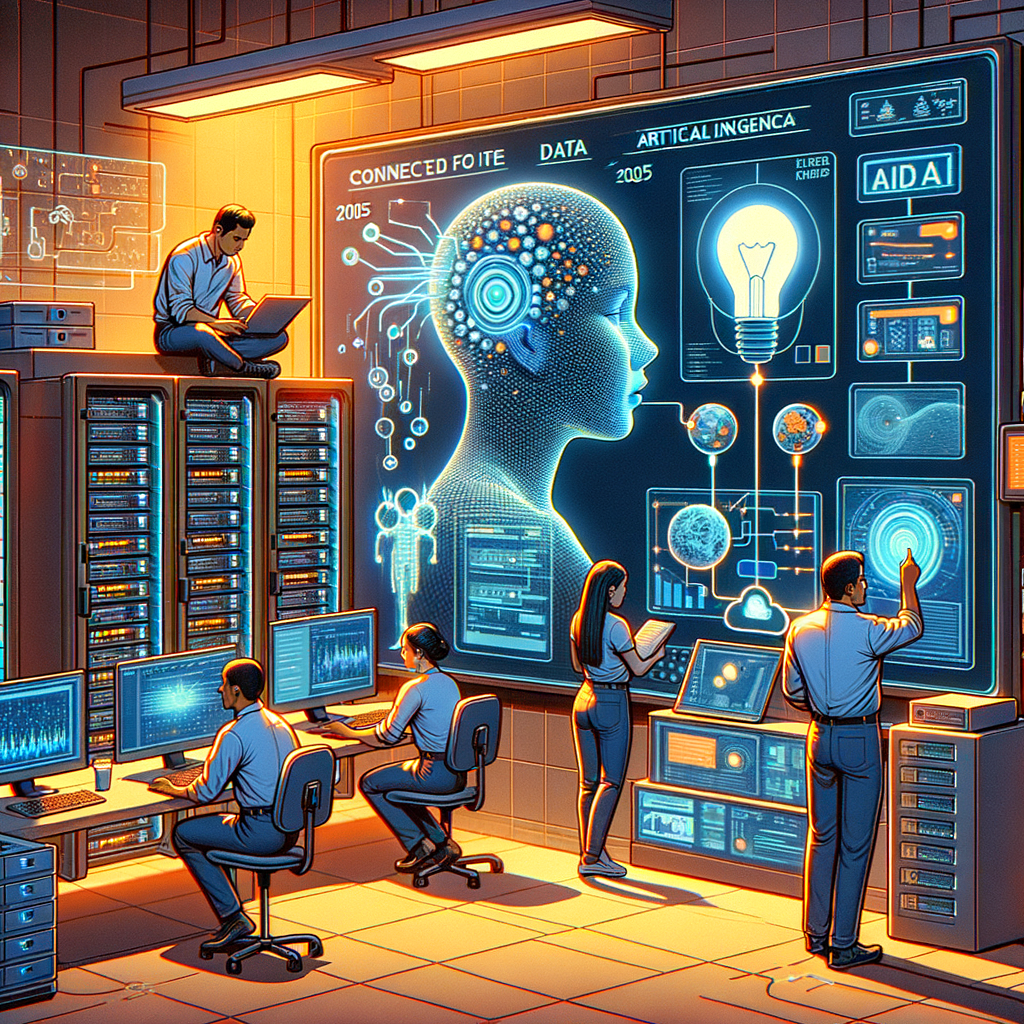The 2000s marked a significant turning point in the world of data and artificial intelligence (AI). With the rise of big data, advancements in AI technology, and the emergence of machine learning, data analytics underwent a revolution that continues to shape our world today. However, these developments also raised ethical concerns that must be addressed as we look towards the future of data and AI.
The Rise of Big Data
The 2000s saw an explosion in the volume, velocity, and variety of data being generated, leading to what is now commonly referred to as big data. With the advent of social media, mobile devices, and the start of the Internet of Things, organisations began collecting massive amounts of data that needed to be stored, processed, and analysed in order to extract valuable insights. This gave rise to technologies such as Hadoop and Spark, which allowed for the distributed processing of large datasets.
Advancements in Artificial Intelligence
During the 2000s, AI made significant strides in areas such as natural language processing, computer vision, and speech recognition. This was made possible by advancements in algorithms, computing power, and data availability. Companies like Google, IBM, and Microsoft invested heavily in AI research, leading to breakthroughs in areas such as deep learning and expanding on the work on neural networks. These developments paved the way for the integration of AI into various industries, from healthcare to finance to transportation.
Impact of Machine Learning
Machine learning, a subset of AI that uses statistical techniques to enable computers to learn from data, gained prominence in the 2000s. Algorithms such as decision trees, random forests, and support vector machines became widely used for tasks such as predictive analytics, pattern recognition, and anomaly detection. Machine learning also played a key role in the development of recommendation systems, fraud detection algorithms, and autonomous vehicles, showcasing its versatility and potential impact on society.
Data Analytics Revolution
The 2000s saw a transformation in how data was analysed and used to drive decision-making. Traditional business intelligence tools were replaced by more advanced analytics platforms that allowed for real-time processing and visualisation of data. Data scientists became essential members of organisations, using tools like Python, R, and TensorFlow to extract insights from complex datasets. This shift towards data-driven decision-making helped companies improve operational efficiency, target customers more effectively, and innovate at a faster pace.
Ethical Concerns in AI Development
As AI technology continued to advance in the 2000s, so did concerns about its ethical implications. Issues such as bias in algorithms, lack of transparency in decision-making processes, and the potential for job displacement due to automation became hot topics of discussion. It became clear that as AI systems became more powerful and pervasive, there was a need for guidelines and regulations to ensure that they were developed and used responsibly.
The Expected Future Trends in Data and AI
Looking ahead to the 2010s, the future of data and AI was filled with promise and challenges. Innovations such as quantum computing, edge computing, and federated learning are poised to revolutionise how data is processed and analysed. As AI continued to evolve, there was be a growing emphasis on explainable AI, fairness in algorithms, and privacy protection. Organisations would need to invest in building ethical frameworks and governance structures to ensure that AI is used in ways that benefit society as a whole.
The evolution of data and AI in the 2000s had laid the foundation for a future where technology plays an increasingly central role in our lives. As we navigate this new era of data-driven decision-making and AI-powered innovation, it is crucial that we remain vigilant about the ethical implications of these advancements. By fostering a culture of responsible AI development and embracing emerging trends in data analytics, we can harness the power of technology to create a more equitable and sustainable future.
#AI, #AIHistory


